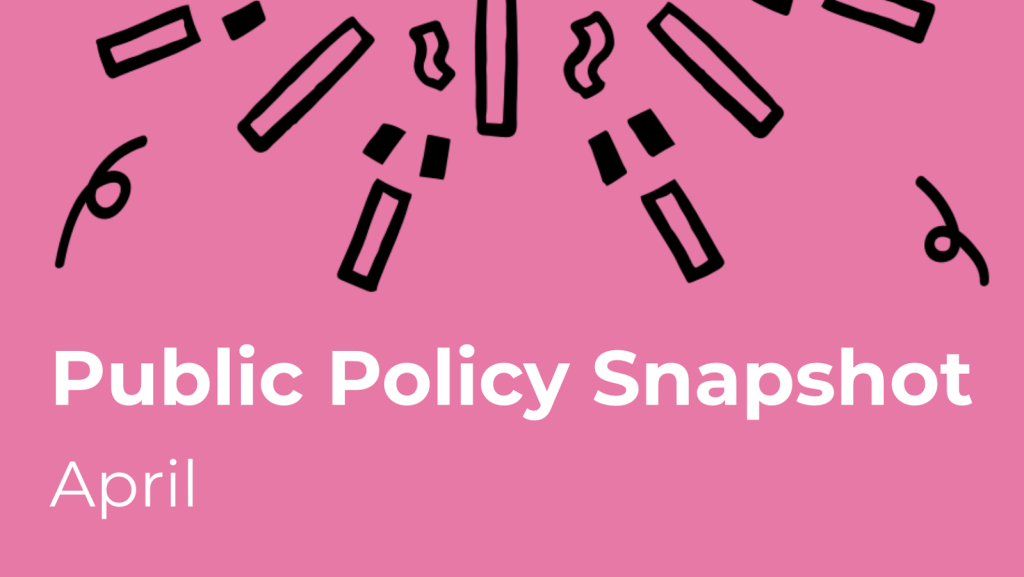
In case you blinked, we’ve compiled the April legislative and regulatory developments from around the world that shaped people’s ability to participate in the free knowledge movement. Here are the most important topics that have preoccupied the Wikimedia Foundation’s Global Advocacy team.
To learn more about our team and the work we do, follow us on Twitter (@WikimediaPolicy), sign-up to the Wikimedia public policy mailing list, or visit our Meta-Wiki page, which we are updating.
Asia Legislative Developments
- SIM Card Registration Act: We are delighted by news that President Duterte vetoed the Philippine SIM Card Registration Act. The decision came after the publication of a joint letter organized by the Foundation for Media Alternatives (FMA) which was signed by the Foundation and a number of civil society groups, requesting that the President veto the bill. The Act would have: required users of social media platforms (and potentially Wikimedia projects) to use their real identities and phone numbers to register accounts; criminalized online anonymity; and penalized platforms that refused to disclose users’ private data. This is a major win for civil society in the Philippines and the region, especially since pseudonymity and anonymity are essential for diverse and safe participation online.
European Union
- DSA deal completed: European Union policymakers have completed their trilogue negotiations over the Digital Services Act (DSA). As one of the first and most comprehensive regulatory frameworks to hold online service providers accountable for the spread of illegal content on their platforms, the act will harmonize how platforms deal with illegal content in Europe and will impact future regulations around the world. Our team has consistently cautioned lawmakers against broad-sweeping regulations that target big, for-profit websites at the expense of community-governed, not-for-profit websites like Wikipedia. An analysis of the practical consequences of the negotiation outcomes indicates a major win—for-profit and not-for-profit platforms will be regulated separately—but some concerns remain. Read our team’s analysis here and that from our colleagues in Brussels.
United States
- Advocacy efforts protect access to knowledge for Russian people: The US government, in response to advocacy efforts by the Wikimedia Foundation and others, including this open letter to President Biden, authorized US internet companies to continue providing essential internet services within Russia. This decision preserves access to the open internet at a time when it has never been more critical for the Russian people to be able to receive accurate information. Russian Wikipedia editors and readers, independent media, and people across Russia—including those speaking for human rights and against the war—can continue to benefit from and contribute to the internet and the free exchange of knowledge online. You can read more about the advocacy process and impact of the US government’s final decision in this Foundation Diff post.
- SMART Copyright Act: The Foundation has opposed a bill called the SMART Copyright Act. If it passes, it could force projects like Wikipedia to use certain technical tools to monitor and manage copyright infringement. We sent a letter with our concerns about the bill to lawmakers and published a post on Diff explaining our concerns. We also supported Fight for the Future in amplifying their petition against the Act. The petition was delivered on Monday, 25 April. Our team will continue to monitor whether the bill moves forward.
- Supporting access to knowledge about LGBTQ+ topics: The Global Advocacy team published a blog post exploring how US bills banning LGBTQ+ and other identity-related topics in schools violate children’s human rights and threaten access to knowledge. Such bills infringe on children’s freedom of expression and rights to dignity and safety, and diminish access to knowledge. While these vacuums in knowledge should not exist, free knowledge projects like Wikipedia can help to fill the knowledge gaps created by these bills.
Announcements from our team
- Sponsoring digital rights forums and processes around the world: The Global Advocacy team is supporting four events this fiscal year. It’s a way to give back to the digital rights activists and civil society organizations who advocate for policy frameworks and regulations that support human rights on the internet. We published a blog post that highlights these events and includes links on how you can join. Two of these events are already in motion this month: the C20 forum and the Digital Rights and Inclusion Forum. Registration is still open for the upcoming two events: A conversation on transparency in content moderation co-hosted with Observacom, which takes place this Sunday (1 May) in Punta del Este, Uruguay, and for RightsCon, which is scheduled for 6–10 June.
- Human Rights Policy community conversations: The Global Advocacy team is hosting a series of community conversations in May to learn how the Human Rights Policy can best support Wikimedians. These conversations and smaller focus groups will help us understand how community members’ human rights have been challenged and how the Foundation can better support individuals. We hope to see you there!
- Global Advocacy Meta-Wiki page updates: Our team’s Meta-Wiki page remains under construction (like the rest of Meta), but we have released the first series of updates. We are improving our presence there to better convey to staff and volunteers who we are, what we do to protect and promote the open internet, and how to collaborate with us. We also want to create a single point of entry for support, information, and resources as a way to build a better front door. Other updates will include providing an FAQ to address common questions about our work and eventually creating an archive of previous advocacy campaign material for volunteers and affiliates’ staff to adapt for their own advocacy initiatives.

Can you help us translate this article?
In order for this article to reach as many people as possible we would like your help. Can you translate this article to get the message out?
Start translation